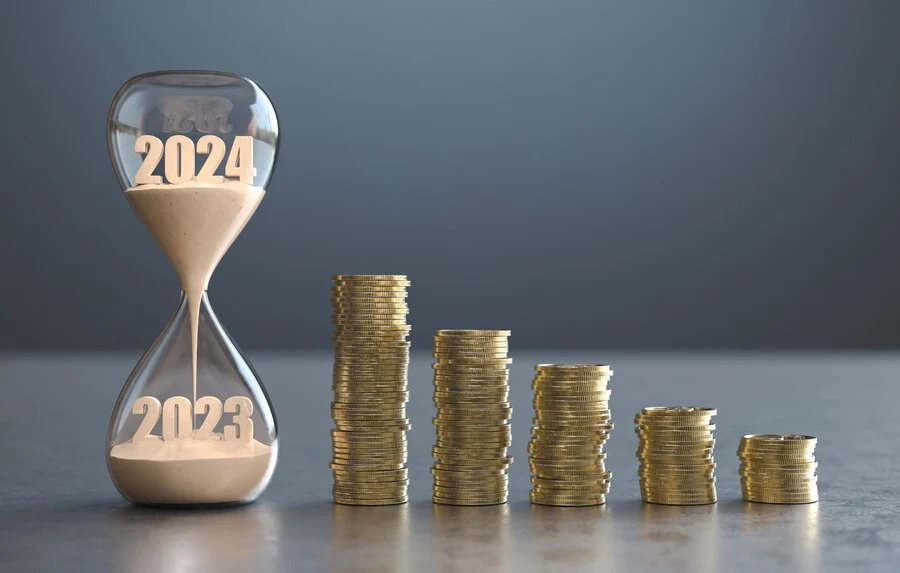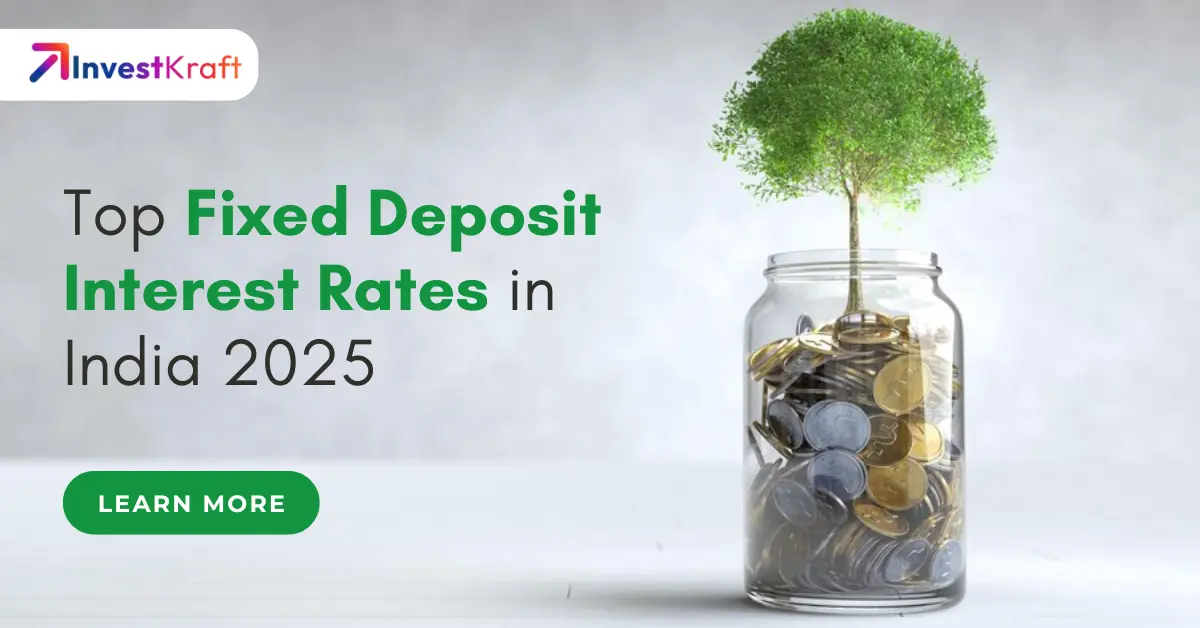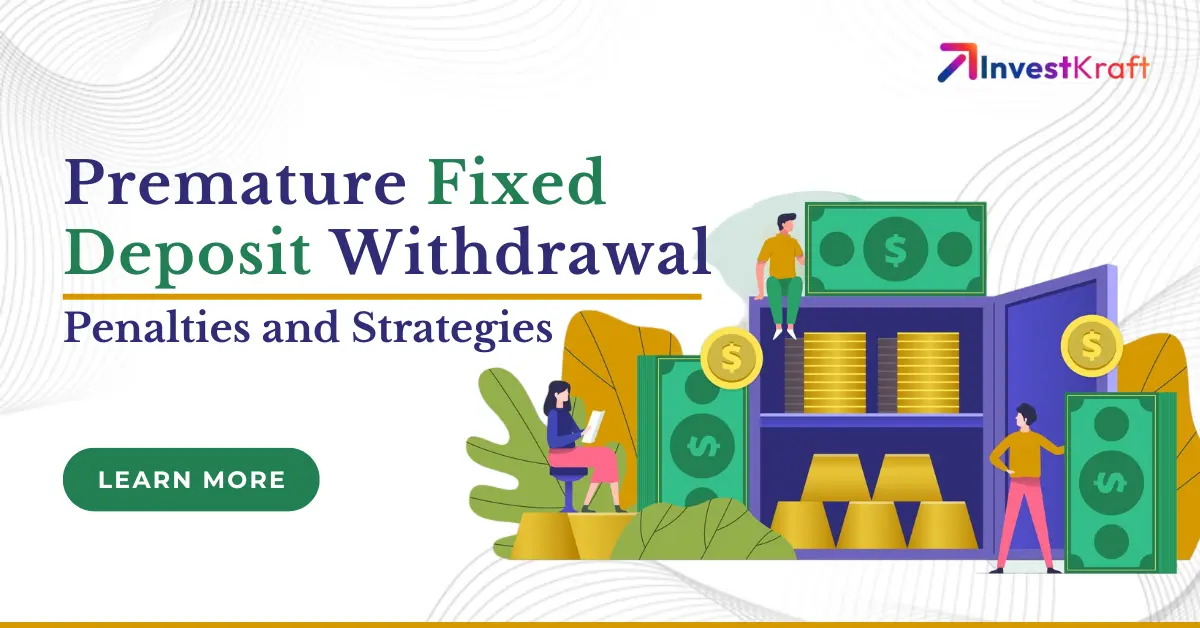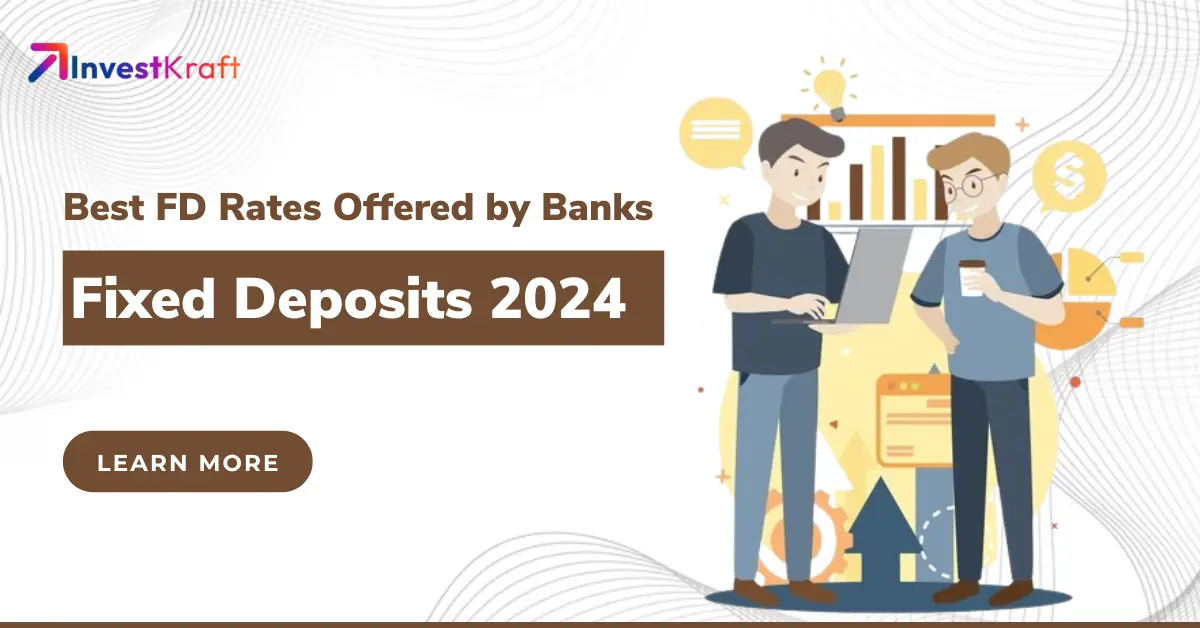Grow Your Money Safely: A Comprehensive Guide to Fixed Deposits (FDs) 2024

Fixed deposits have been considered a time-tested investment tool to get guaranteed returns on investment. Even though their interest rate is plummeting every year, people are inclined towards them due to several reasons. The reason is reliability that their money is safe and they would get what they are promised by the bank or financial institution.
However, there is one aspect that is often overlooked by investors is the lack of knowledge about fixed deposits that are meant to help them get better returns than what they expect. For example, not many people know that there are different types of fixed deposits to choose from. By understanding them, they can choose the most appropriate fixed deposit for their investment objective.
What Is Fixed Deposit?
A Fixed Deposit or FD is a kind of investment tool in which an investor puts a lump sum amount for a certain period to get interest at a said rate. In general, people invest in fixed deposits as they offer better growth than savings accounts. So, instead of idling money in the bank account, it is better to invest the same in a Fixed Deposit.
Fixed Deposits are provided by banks, post offices, and other financial institutes. Investing money in a fixed deposit is very easy one can open an FD in no time.
Importance of Choosing the Right Fixed Deposit
Choosing the right fixed deposit for your financial goals is essential. It involves evaluating factors such as time horizon, return and risk. Conducting thorough research and seeking professional advice can provide insights into various options. Ultimately, it is important to align your fixed deposit goals with your financial goals to maximize the chances of success.
- Determine your Savings Goal: For short-term goals like a vacation, choose a short-term fixed deposit or MMD (Money Market Directories) for potentially higher returns. For medium-term goals like buying a car, choose an FD with a moderate tenure. For long-term goals like retirement, choose long-term FDs for potential compounding.
- Consider your Risk Tolerance: If you prefer stability, choose fixed deposits. If you are open to more risk for higher returns, choose MMDs.
- Assess your Financial Discipline: Regular savings influence term deposit choice. For regular monthly savings, consider recurring deposits. They are suitable for sustainable savings growth. If you want a lump sum amount, FDs or MMDs may be better. These allow larger initial investments that can be beneficial during windfall or meet your savings goal.
- Research and Compare Interest Rates: Make sure to thoroughly research and compare different interest rates before making any decisions. It is important to consider that a higher interest rate can have a significant impact on the amount of money you earn in the long run.
Types Of Fixed Deposits
If you are looking to open a fixed deposit in Delhi, you must know the different types of fixed deposits offered by financial organizations these days.
1. Cumulative Fixed Deposit:
What Is a Cumulative Fixed Deposit? A cumulative fixed deposit is a kind of conventional investment plan where the investors get the interest upon maturity. It is noted that the amount invested goes up by the interest over the previous month or interest tenure. An investor can enjoy the advantage of compounding interest and get amazing returns.
- Tenure: 7 days to 10 years
- Interest Rate: 3.00% to 7.50%
- Eligibility: Open to Indian Residents, Non-Resident Indians, Minors, Senior Citizens, and various entities.
- Taxation: Subject to TDS if interest income exceeds specified thresholds.
2. Tax Saver Fixed Deposit:
As its name indicates, this fixed deposit allows investors to get a tax rebate of up to 1.5 lacs in a financial year under section 10C. However, this fixed deposit comes with a lock-in period of 5 years.
- Tenure: Fixed at 5 years
- Interest Rate: 5.5% to 7.75%
- Eligibility: Indian Residents above 18 years, including Hindu Undivided Families (HUFs).
- Taxation: Offers tax deductions of up to ₹1.5 lakhs under Section 80C of the Income Tax Act.
3. Non-Cumulative Fixed Deposit:
Similar to a cumulative FD, this FD is a subdivision of a traditional fixed deposit. However, since interest is paid out on a monthly, quarterly, half-yearly, or annual basis, this FD is a good option for those who want to have a steady income. And, in this case, the maturity amount remains lower than what an investor would get from a cumulative FD.
- Tenure: 6 months to 5 years
- Interest Rate: 5.30% to 7.80%
- Eligibility: Suitable for Salaried Individuals, Partners, and Sole Proprietors.
- Taxation: Subject to TDS if interest income exceeds specified thresholds.
4. Flexi Fixed Deposit:
This FD gets this name as it offers dual benefits to investors in the form of a conventional fixed deposit and a demand deposit. The amount invested by the person is linked to the savings accounts of the deposit issuer. However, it is to be noted that this FD offers better returns along with the easy liquidity of a savings account.
- Tenure: 7 days to 10 years
- Interest Rate: 3.00% to 8.95%
- Eligibility: Available for Indian Residents, Minors under guardianship, and Senior Citizens.
- Taxation: No tax benefits applicable.
5. Post Office FD:
Considered among the safest investment choices available these days, a post office fixed deposit is often called a post office term deposit. This FD is issued by the Indian Postal Service and one can get it through post offices located all across the country. This FD also comes with the sovereign guarantee provided by the Indian government.
- Tenure: 1 to 5 years
- Interest Rate: 6.9% to 7.5%
- Eligibility: Available for Indian Residents, Minors under guardianship, Senior Citizens and people with unsound minds who have a legal guardian
- Taxation: Offers tax deductions of up to ₹1.5 lakhs under Section 80C of the Income Tax Act.
6. Company FDs:
One popular type of FD is a company FD, which is also known as a corporate FD. They are very simple. These FDs refer to fixed deposits that are offered by Non-banking Financial Corporations.
When an investor decides to invest in corporate FDs, it is recommended to consider CRISIL, ICRA, and other credit ratings of the issuer. They are meant to help investors understand the level of safety associated with the fixed deposit. These types of FDs come with varying tenures and more reasonable rates of return as compared to other FDs.
- Tenure: 12 to 60 months
- Interest Rate: 6.75% to 8.18%
- Eligibility: Open to various entities including individuals, corporations, and associations.
- Taxation: Subject to TDS if interest income exceeds specified thresholds.
7. Senior Citizen FDs:
A senior citizen fixed deposit is a great option for retirees as it offers an additional 0.5% interest over the standard FD rates. This special FD account for residents above 60 years of age also provides tax deductions under section 80C of the Income Tax Act. Additionally, it is designed with multiple interest payout options - monthly, quarterly, half-yearly and yearly, giving flexibility to the account holders.
- Tenure: 7 days to 20 years
- Interest Rate: 2.50% to 9.50% (0.50% higher than standard FD rates)
- Eligibility: Exclusive to Indian Residents aged 60 years and above.
- Taxation: Eligible for tax deductions under Section 80TTB of the Income-tax Act.
8. NRE FDs
The NRE fixed deposit accounts offer NRIs the opportunity to save money in foreign currency and enjoy tax-free returns. It also provides the convenience of repatriating the funds invested from an Indian account. Additionally, investors have the flexibility to transfer their deposits to different accounts if needed.
- Tenure: 1 to 10 years
- Interest Rate: 6.10% to 7.75%
- Eligibility: Exclusive to Non-Resident Indians and Persons of Indian Origin.
- Taxation: Tax-free returns; not subject to taxation.
9. NRO FDs
NRO (Non-Resident Ordinary) fixed deposit accounts are specifically designed for NRIs who wish to manage and earn returns on their funds earned in India. Unlike NRE accounts, the funds deposited in NRO fixed deposit accounts are not fully repatriable and are subject to taxation as per the Income Tax Act of 1961. Interestingly, NRO accounts also allow foreign individuals to apply for an FD investment jointly with Indian citizens.
- Tenure: 7 days to 10 years
- Interest Rate: 3.00% to 8.25%
- Eligibility: Open to Non-Resident Indians, Overseas Citizens of India, and People of Indian Origin.
- Taxation: Subject to TDS at 30%, including surcharge and cess.
What are the Benefits Of Fixed Deposits?
There are several advantages of fixed deposit accounts the most preferred investment option among investors of all types. Let’s take a look at them below.
- Better Returns: A fixed deposit's interest rate remains fixed at the time when you invest. The returns are thus expected and one can calculate the same using various FD calculators.
- Flexibility: In general, fixed deposits are available for different policy tenures, which enables investors to select the one that matches their needs the best.
- Security: Keeping in mind that banks and other financial institutions that are government-insured sometimes issue fixed deposits, they are considered a low-risk investment choice. To verify the security and safety of your account, it is recommended to check the ratings of various fixed deposits.
- Liquidity: Most fixed deposits allow easy withdrawal of the amount at the time of maturity, however this may levy some charges.
FAQs
1. How Can I Calculate The Interest Rate Of A Fixed Deposit?
The best way to calculate the interest rate on an FD is to use an FD interest rate calculator.
2. Can I Withdraw The Amount before The Maturity?
Yes, it is possible to withdraw the amount before the maturity date but you might not get a little lesser amount.
3. Do I Need To Submit An Age Proof While Booking An FD?
Yes, all types of FDs can be booked only after submitting the ID and age proof.
Related Posts;
- Differences Between Cumulative and Non-Cumulative Fixed Deposits
- Impact of Inflation on Your Fixed Deposit Returns
- Step-by-Step Guide to Using a Fixed Deposit Calculator
The Conclusion
Fixed deposits are a wonderful investment choice for those who want a steady amount at the time of maturity. And, it is good for people who have a lump sum amount to invest. If you are looking to invest in fixed deposits in Delhi, it is better to do thorough research and explore different types of fixed deposits. Invest in the one which you find the best for your needs.
Verify Phone Number
Related Post

Fixed Deposit (FD) Explained: Best Interest Rates & Investment Guide for 2025
Fixed Deposits (FDs) are a popular investment tool, especially favoured by those seeking a sta...
Read more...
How to Escape from Early Withdrawal Penalties of Fixed Deposits?
Fixed deposits are popular for investing money as they provide security and steady growth. However,...
Read more...
Invest Wisely, Retire Comfortably: A Guide to Senior Citizen Fixed Deposits (FDs) in 2024
The interest rates for senior citizens who invest in fixed deposits can vary depending on factors su...
Read more...
Reasons Why SIP Investment is Best Way to Invest
Reasons Why SIP Investment is Best Way to Invest, Though there are several investment channels and m...
Read more...
Top Alternative Investments Promising Double-Digit Returns
Top Alternative Investments Promising Double-Digit Returns: For the majority of people these days, s...
Read more...
Recurring Deposits (RD) – Benefits, Features, and How to Open RD Account
Among the different types of investment products available in India these days, recurring deposits a...
Read more....webp)
PPFs Explained: Features, Benefits, and How to Maximize Your Returns
The main objective behind the launch of the Public Provident Fund, or PPF in 1968 was to enable peop...
Read more...
Grow Your Money Safely: A Comprehensive Guide to Fixed Deposits (FDs) 2024
Fixed deposits have been considered a time-tested investment tool to get guaranteed returns on inves...
Read more....webp)
Understanding the Impact of Inflation on Your Fixed Deposit Returns
Fixed Deposits (FDs) are indeed widely favoured due to their stable and guaranteed returns, making t...
Read more...
Comparative Analysis: Best FD Rates Offered by Banks in 2024
When it comes to choosing the safest and most consistent investment avenue in India, a majority of p...
Read more...Reach out to our Experts if you have any Doubts
Like the best things in life, Consultations @InvestKraft are free
Drop a Mail or give us a Missed Call & Begin your Investment Journey here



